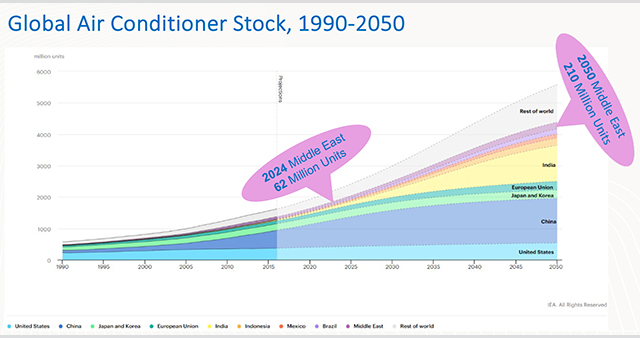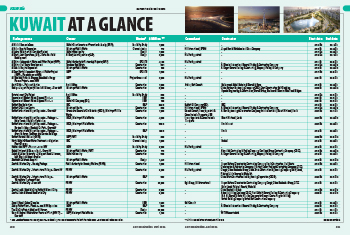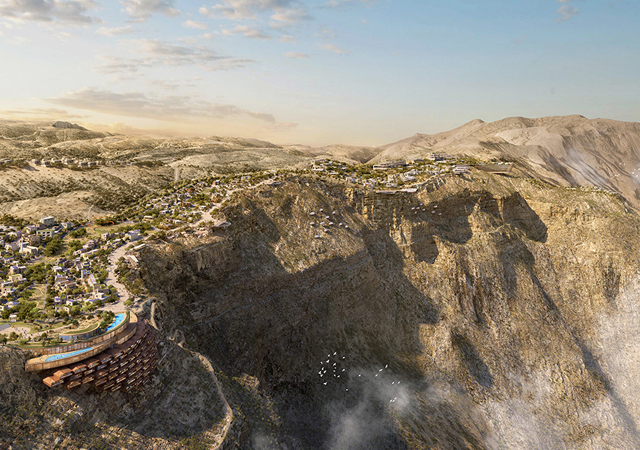
 Aluma’s time-saving table forms have been used at some of the prestigious projects at Dubai.
Aluma’s time-saving table forms have been used at some of the prestigious projects at Dubai.
Fast-track formwork specialist Aluma Systems has gone from strength to strength in the Gulf region, thanks to its range of time-saving aluminium systems.
The Canadian company – which had been serving the region for many years through its Toronto offices, prior to setting up a regional base in Dubai in 2003 – has seen a rapid growth in business over the past seven years.
Specialising in high-rise construction, Aluma offers its patented Alumalite Truss flying table form, which allows slabs to be safely placed faster, and more cost-effectively, compared to conventional formwork systems, says a spokesman for the company.
Aluma Systems’ innovative techniques and revolutionary technology – backed by its superior on-site supervision – has helped it to grab a larger share of the market. Over the past few years, the company has rapidly expanded its portfolio, adding one prestigious project after another and is currently working on various sites in Dubai, Abu Dhabi, Sharjah, Fujairah, Qatar and Saudi Arabia.
Alumalite Truss flying table form has helped speed up work at the iconic ‘Gate’ building, located at the Dubai International Finance Centre. For the project, the company had provided Alumalite Truss flying tables, aluminium adjustable column-forms, and aluminium ganged wall-form to the subcontractor Robodh (for main contractor Peremba). Its success story continued with a 13-tower deal for Jumeirah Beach Residence, where it supplied its systems to Arabtec. The contractor achieved four-day cycles with its floor construction.
“Since then, we have been involved in many of Dubai’s most prestigious projects. We have supplied flying super-trusses for Mall of the Emirates, which were also used to speed up construction of the Kempinski Hotel at the front of the mall. These huge table-forms contained 750 cu m of falsework,” explains Daniel Taylor, business development manager of Aluma Systems Middle East.
Listing some of the company’s latest orders in Dubai, Taylor says: “We have recently signed contracts to supply our system on four towers at the Downtown Jebel Ali project (Al Habtoor Engineering), and for the large Ibn Battuta Gate project (for the joint venture contractor ACC/Higgs & Hill).”
Aluma’s rapid expansion is attributed to the boom in the region’s construction industry – especially in the UAE – over the past few years. In addition, it has a number of advantages over its competition including a full-fledged local production facility. Aluma has been manufacturing in Dubai since 2003 and is currently producing all its systems from its state-of-the-art plant in the emirate. The local manufacturing process follows Aluma’s strict International quality assurance policy, ensuring that all materials adhere to the highest standards in quality.
“A major benefit of the system is the speed at which the contractor can move the formwork from floor to floor. The tableform can easily move more than 100 sq m of falsework/formwork in one crane lift. These tableforms are flown as one complete unit, with the legs, jacks, cross-bracing, decking, and edge protection all attached during the lift,” he explains.
“Because the system is able to relocate the false/formwork so quickly, it has a positive impact on the construction schedule. In addition, the process of stripping, flying, and re-erecting the tables only requires six to eight labourers, and 20 to 25 minutes to complete. This results in cost savings for the contractor through a reduction in the number of labourers required and a faster construction schedule,” says Bob O’Riordan, Aluma Systems Middle East regional sales director.
“The tables can be constructed to fit any dimensions, and are particularly well suited for flat slab structures. However, slabs with drop-beams and edge-beams also present no difficulties as they can be incorporated into the tables.” he adds.
Taylor continues: “Moreoever, as aluminium is more durable than steel or wood, the system will inevitably last longer. In North America, Aluma Systems still retains a rental fleet of Aluma Beam that dates back to the inception of the company in 1972 – that’s the kind of durability which the company offers when clients opt for the purchase of aluminium formwork instead of steel or timber.”
Managing director Terry Taylor adds: “Another major benefit that is beginning to be realised by contractors is the high residual value of aluminium materials. Five years after purchase, the material value of the aluminium will still be substantial, whilst the comparative value of timber and steel will be almost zero.”
The Alumalite Truss is a modular aluminium table-form, which due to its lightweight components and versatile design, is used to form the largest moveable table-forms in the world, he claims. The table-forms can be designed to a maximum area of 150 sq m.
“No matter what the proposed floor cycle for the structure – be it 10 days or four – the system allows the contractor to further reduce that floor cycle. Whatever the requirements of the individual project, using Alumalite Truss will minimise the time allocated to ‘formwork stripping and re-erection’ in a construction cycle,” he says.
The Alumalite Truss can support shoring heights in excess of 7 m and is composed of a small number of individual components, which can be assembled in different configurations, allowing the unit’s length, width, and height to be varied to suit the individual needs of each project.
The system also comes with its own built-in edge-protection system – the Aluma Shield steel mesh paneling system – the first of its kind to be supplied in the UAE that conformed to the PR EN 13374 European Standard.
Another highlight of the system is its recently-patented hinge arm assembly. “These extended form areas fold flat against the side of the table form when stripping and flying, allowing the table to exit the structure between columns or walls. When re-erected at the new position, the hinges are unfolded, allowing areas of the slab (and drop beam) between the verticals to be formed,” he explains.
Commenting on the company’s prospects for the near future, Taylor says: “The outlook for the future is bright and the company prides itself on now providing a complete temporary works package to its customers (verticals, horizontals, scaffolding and self climb-cores solutions) on either a sale or rental basis.
“Additionally, it has immediate plans to set up branch offices in Abu Dhabi and Sharjah. In five years, we hope to have branch offices in all the major GCC locations to serve the regional market even more effectively.”





















_0001.jpg)


.jpg)
















.jpg)








.jpg)





















.jpg)